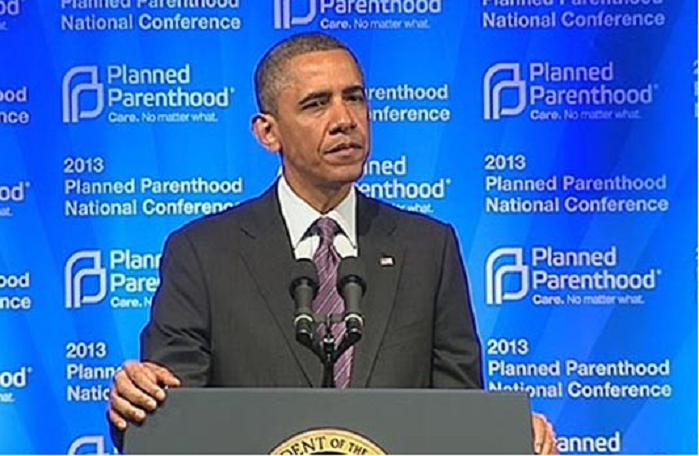Christian Talk Podcast
In the contentious landscape of American politics, few topics are as polarizing as abortion. Former President Donald Trump has reignited this debate by asserting that the Democratic Party has supported late-term abortions and infanticide for decades. This assertion, while provocative, is rooted in a history of Democratic policies and legislative actions that align with his claims.
In his recent statements, Trump pointed to numerous instances where Democratic leaders have supported or failed to oppose legislation that permits late-term abortions. This includes actions taken by Democratic senators and state legislators over the past several decades.
For example, during his presidency, Trump highlighted the opposition of Senate Democrats to the Born-Alive Abortion Survivors Protection Act, a bill that aimed to ensure medical care for infants who survive abortion attempts.
Senator Rick Scott (R-FL) has been a vocal critic of the Democratic Party’s stance on this issue. In a 2020 statement, Scott emphasized, “Senate Democrats stand for infanticide and late-term abortion,” noting their repeated blocking of legislation intended to protect infants born alive after failed abortion procedures. Scott’s remarks underscore a broader pattern of Democratic resistance to measures that would restrict or outright ban late-term abortions.
The historical context of this debate reveals a consistent trend. In 1993, President Bill Clinton vetoed the Partial-Birth Abortion Ban Act, a bill that sought to prohibit a specific late-term abortion procedure. This veto exemplified the Democratic Party’s alignment with abortion rights groups that argue such procedures are sometimes necessary to protect the health of the mother. However, critics argue that this stance effectively permits the termination of viable pregnancies.
The “fact checkers” at the Associated Press, CNN, the Washington Post and WCBS radio (NY) are claiming that former president Donald Trump was wrong to say in the debate that not only do late-term abortions and partial-birth abortions still occur, babies are being killed after an abortion, and that the Democrats support it. They are wrong. Trump is right.
Here are some facts they overlook.
- 1977: Dr. C. Everett Koop, later U.S. Surgeon General, told the American Academy of Pediatrics, “Well, you know that infanticide is being practiced right now in this country…I am concerned that there is no outcry…I am concerned about this because when the first 273,000 German aged, infirm, and retarded were killed in gas chambers there was no outcry from that medical profession either, and it was not far from there to Auschwitz.” His titled his speech, “The Slide to Auschwitz.”
- 1995: Partial-birth abortionist Dr. George Tiller said, “We have some experience with late terminations; about 10,000 patients between 24 and 36 weeks and something like 800 fetal anomalies between 26 and 36 weeks in the past 5 years.”
- 1997: Ron Fitzsimmons, executive director of the National Coalition of Abortion Providers, admitted on national TV that he “lied through [his] teeth” when he “just went out there and spouted the party line” about how rare partial-birth abortions are.
- 2001-2003: Illinois State Senator Barack Obama opposed bills that would have mandated that a child born alive as a result of a botched abortion be given medical care.
- 2003: The U.S. Senate voted 64-33 to outlaw partial-birth abortion. Of the 33, 29 were Democrats, 3 were Republican, and 1 was an Independent.
- 2007: Senator Joe Biden, who voted for the ban on partial-birth abortion in 2003, changed his mind and said the ban on killing a baby who is 80 percent born is “paternalistic.”
- 2019: The pro-abortion Guttmacher Institute admits that at least 12,000 late-term abortions take place annually in the U.S.
- 2019: New York State Gov. Andrew Cuomo signs a bill that removes legal penalties to any medical staff personnel who intentionally allow a child born as a result of a botched abortion to die.
- 2019: Virginia Gov. Ralph Northam said that if a mother sought to abort her baby, but the baby was born anyway, “the infant would be resuscitated if that’s what the mother and her family decide, and then a discussion would ensue between the physicians and the mother.” He added that the baby would be “kept comfortable” before they put him down or let him die.
- 2019: Montana Gov. Steve Bullock vetoed the Born-Alive Infants Protection Act, a law that would have required children born alive who survived an abortion to be treated like any other human being.
- 2019: The Born-Alive Infant Abortion Survivors Protection Act was blocked by Senate Democrats Bernie Sanders, Amy Klobuchar and Elizabeth Warren; all were presidential candidates.
- 2019: The Washington Post conceded that at least 10,000 late-term abortions take place each year.
- 2023: All but two congressional Democrats voted to kill the Born Alive-Infant Abortion Survivors Protection Act.
More recently, the debate has focused on state-level actions. States like New York and Virginia have enacted or proposed laws that allow abortions up to the point of birth if the mother’s health is at risk.
In 2019, New York passed the Reproductive Health Act, which expanded abortion rights and removed abortion from the state’s criminal code. This act was praised by abortion rights advocates but condemned by pro-life groups and conservative politicians, including Trump, who argued it sanctioned infanticide.
The arguments from the Democratic side often emphasize women’s health and autonomy. They contend that restrictions on late-term abortions infringe on a woman’s right to make deeply personal medical decisions. For instance, New York Governor Andrew Cuomo defended the Reproductive Health Act by stating it was necessary to protect women’s rights and health care.
However, Trump and his supporters view these arguments as a guise for extreme abortion policies that disregard the rights of viable fetuses. Trump’s framing of the issue taps into a longstanding conservative critique that the Democratic Party’s policies prioritize ideological commitments over ethical considerations regarding fetal life.
This perspective finds resonance among many Americans who believe that life begins at conception and should be protected under all circumstances. According to a Gallup poll from 2020, 50% of Americans identified as pro-life, with significant portions expressing opposition to late-term abortions. These sentiments bolster Trump’s assertions and suggest a significant portion of the electorate shares his concerns about Democratic abortion policies.
The conservative perspective, as articulated by Trump and allies like Senator Scott, contends that the Democratic Party’s support for late-term abortion laws effectively endorses infanticide.
They argue that the refusal to pass legislation like the Born-Alive Abortion Survivors Protection Act indicates a disregard for infant lives. This position is bolstered by the fact that similar legislation has passed with bipartisan support in some states, indicating a cross-party consensus on the need to protect infants born alive after failed abortions.
While the debate over abortion is unlikely to be resolved anytime soon, Trump’s recent comments have reignited a critical discussion about the moral and ethical dimensions of late-term abortion.
By framing the issue in stark terms, Trump has drawn attention to what he and his supporters view as a fundamental moral failing of the Democratic Party. This debate will undoubtedly continue to play a significant role in American politics, shaping the contours of future legislative battles and electoral campaigns.
About The Author
Eric Thompson
Eric Thompson is a former US Marine, husband, father, follower of Christ, show host, opinion writer and a good driver based in Oklahoma.




